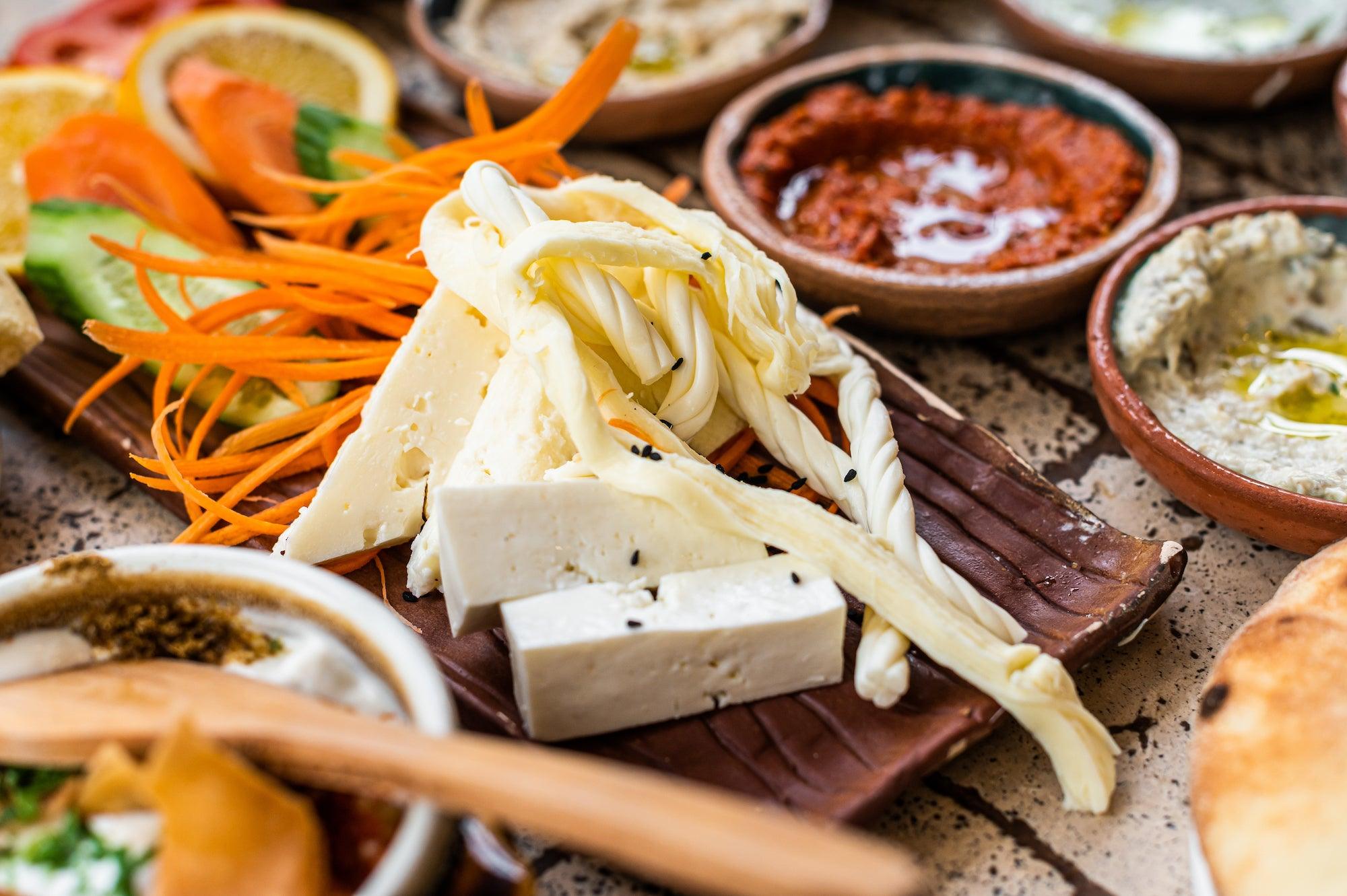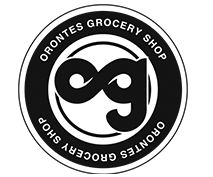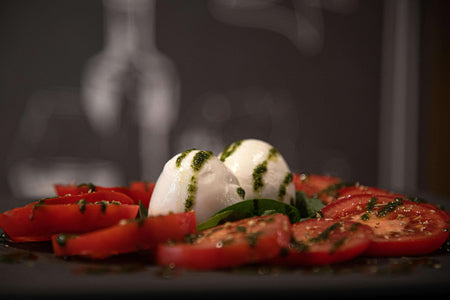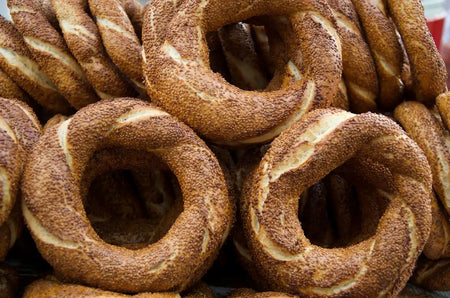Cemil, company.com

Exploring the Delicious and Healthy World of Traditional Turkish Breakfast
Turkish breakfast is one of the most important meals of the day for many locals. It's a meal that is savored and celebrated, bringing people together around a table filled with an array of dishes. Traditional Turkish breakfast is known for its variety, freshness, and deliciousness, and it's a great way to start the day with energy and vitality.
So what exactly is included in a traditional Turkish breakfast? Let's take a closer look at some of the most popular items.
Cheese: Turkish breakfast cheese is one of the highlights of the meal. Turkish cheeses range from salty and tangy to mild and buttery, and there are many varieties to choose from. Some popular cheeses include beyaz peynir, a feta-like cheese, and kaşar, a yellow cheese with a nutty flavor.
Olives: Olives are a staple of Turkish breakfast, with a variety of black and green olives to choose from. They are usually served in small dishes, often with lemon wedges and olive oil.
Tomatoes and cucumbers: Fresh and juicy tomatoes and cucumbers are also essential to a traditional Turkish breakfast. They are often sliced and served on a platter with cheese and olives.
Eggs: Turkish breakfast also features eggs in various forms, such as boiled, fried, or scrambled. Menemen, a popular Turkish breakfast dish, is a delicious combination of eggs, tomatoes, peppers, and spices, often served in a cast-iron skillet.
Bread: No Turkish breakfast is complete without bread, which is usually a crusty white loaf or simit, a sesame-covered bread ring. Bread is used to scoop up the different dips and spreads on the table, such as honey, jam, or kaymak.
Tea: Turkish tea is an important part of the breakfast ritual, and it's often served in a small tulip-shaped glass. It's strong, black tea brewed in a samovar and served with a cube of sugar. Turkish tea is a great way to wake up and start the day with energy.
As you can see, traditional Turkish breakfast is a feast for the senses, with a range of colors, flavors, and textures to enjoy. It's a healthy and balanced meal that is perfect for starting the day with vitality and nourishment.
If you're interested in experiencing Turkish breakfast for yourself, you can easily find restaurants and cafes that serve this meal throughout Turkey. Alternatively, you can create your own Turkish breakfast at home by sourcing Turkish cheeses, olives, and other ingredients from your local specialty food store.
In conclusion, Turkish breakfast is a delicious and healthy meal that is steeped in tradition and culture. It's a celebration of fresh and flavorful ingredients, and it's a great way to start the day with energy and vitality. So why not give it a try and see what all the fuss is about?
Related articles
Top 10 Tulum Cheese Dishes: Quick and Easy Cooking Guide
Discover 10 delicious recipes featuring Tulum cheese, including grilled vegetable salad, stuffed peppers, tacos, frittata, roasted beet salad, flatbread, stuffed mushrooms, pasta, omelet, and pizza. Each dish showcases the rich, tangy flavor of Tulum cheese, adding a unique twist to your meals. Elevate your cooking with these simple yet flavorful recipes, and for the finest selection of Tulum cheese, visit Orontes Grocery today!
The Irresistible Turkish Bagel Recipe
Simit, an iconic Turkish street food, holds a special place in the hearts of food enthusiasts. These circular bread rings, coated in sesame seeds and baked to perfection, are more than just a snack; they are a culinary delight reflecting the rich flavors of Turkish cuisine. Let's dive into the world of Simit and discover how to make this irresistible Turkish bagel at home. Ingredients You'll Need: 4 cups all-purpose flour 1 tablespoon instant yeast 1 teaspoon salt 1 tablespoon sugar 1 1/2 cups lukewarm water 1/4 cup olive oil 1 egg white (for egg wash) Sesame seeds (for coating) Instructions: Prepare the Dough: In a large mixing bowl, combine the lukewarm water, sugar, and yeast. Let it sit for 5-10 minutes until frothy. Add the olive oil, salt, and half of the flour. Mix well. Knead the Dough: Gradually add the remaining flour and knead the dough on a floured surface for about 8-10 minutes until it's smooth and elastic. Place the dough in a greased bowl, cover it with a kitchen towel, and let it rise in a warm place for about 1 hour or until doubled in size. Shape the Simit: After the dough has risen, punch it down and divide it into 12 equal portions. Roll each portion into a long rope, about 18 inches long, and form it into a circle, overlapping the ends slightly. Press the ends together to seal. Prepare the Coating: In a shallow bowl, beat the egg white. In another bowl, place the sesame seeds. Coat the Simit: Dip each shaped bagel into the egg white, making sure to coat it evenly. Then dip it into the sesame seeds, covering the entire surface with seeds. Second Rise: Place the coated bagels on a baking sheet lined with parchment paper. Cover them with a kitchen towel and let them rise for another 30 minutes. Preheat and Bake: Preheat your oven to 400°F (200°C). Bake the risen bagels for 20-25 minutes or until golden brown and crispy. Enjoy Your Homemade Simit: Once baked, let the Simit cool on a wire rack before serving. These Turkish bagels are best enjoyed fresh and can be served with cheese, olives, jam, or simply on their own as a delightful snack. Tips for Perfect Simit Flour Matters: Using high-quality flour will make a significant difference in the texture of your Simit. Bread flour can also be used for a chewier texture. Proper Kneading: Ensure you knead the dough thoroughly to develop the gluten, which gives Simit its characteristic chewiness. Uniform Size: To ensure even baking, try to keep each Simit the same size and thickness. Crispy Crust: If you prefer a crispier crust, increase the baking time slightly but keep an eye on them to prevent burning. Storing Simit: If you have leftovers, store them in an airtight container to keep them fresh. You can also freeze them and reheat in the oven when needed. Benefits of Turkish Bagel (Simit) Rich in Fiber: Simit, made from flour and sesame seeds, supports digestion and a healthy gut. Source of Protein: Provides essential protein for muscle repair and overall body function. Healthy Fats: Contains olive oil and sesame seeds, offering heart-healthy fats. Cultural Experience: Enjoy Simit as a part of Turkish street food culture, connecting with Istanbul's vibrant culinary tradition. Versatile Snack: Perfect for breakfast or as a snack, enjoyed with cheese, olives, or jam. Homemade Goodness: Making Simit at home ensures freshness and quality ingredients, adding warmth to your table. Experience the Taste of Turkey: Making Simit at home is not just about baking bread; it's about experiencing the flavors and culture of Turkey in every bite. Whether you enjoy them for breakfast, as a snack, or with tea or coffee, Simit brings a taste of the bustling streets of Istanbul right to your kitchen. Share these delicious treats with family and friends and savor the joy of homemade Turkish bagels. Afiyet olsun! (Enjoy your meal!)








